R - Past-Witnesses
- Oral Roberts - Douglas Rhymes - Haddon Robinson - Albert J Roboteau - Robert Rollock - Richard Rubenstein -
oral roberts
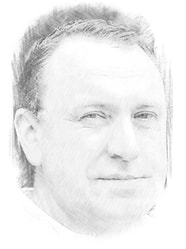 Joe Carter
Joe Carter
The man who could be considered the father of modern prosperity gospel teaching is Oral Roberts. Born in 1918 in Pontotoc County, Oklahoma, Roberts rose to prominence in the mid-20th century and played a significant role in shaping modern Pentecostalism and charismatic Christianity. He grew up in poverty and struggled with tuberculosis as a teenager. He claims he decided to dedicate his life to Christian ministry after being miraculously healed during a revival meeting.
His ministry was one of the first to realize the potential of television as a medium for spreading the gospel, and his programs reached millions of viewers. The faith-healing evangelist became so influential that he started his own school, Oral Roberts University. At the height of his influence, Roberts oversaw a ministry that brought in $110 million in annual revenue. --Joe Carter; Gospel Coalition; 9 Things You Should Know About the Prosperity Gospel 9.2.23
His ministry was one of the first to realize the potential of television as a medium for spreading the gospel, and his programs reached millions of viewers. The faith-healing evangelist became so influential that he started his own school, Oral Roberts University. At the height of his influence, Roberts oversaw a ministry that brought in $110 million in annual revenue. --Joe Carter; Gospel Coalition; 9 Things You Should Know About the Prosperity Gospel 9.2.23
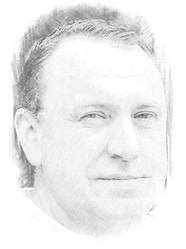 Joe Carter
Joe Carter
While Roberts was one of the first to combine New Thought principles with faith healing, the most prominent evangelist of the prosperity gospel—and the father of the Word of Faith movement— was Kenneth E. Hagin (1917–2003). In 1962, Hagin founded Kenneth Hagin Ministries to spread his teachings, which emphasize speaking words of faith as a way to manifest health, wealth, and other blessings.
One of his most influential ideas was his distinguishing between the logos (the written Word of God) and the rhema (the spoken or revealed Word). He argued that rhema is the means by which believers activate God’s promises. As Russell S. Woodbridge says, “More than any other factor, the Word of Faith movement was the vehicle responsible for spreading prosperity teaching across the United States in the late 20th century.”
--Joe Carter; Gospel Coalition; 9 Things You Should Know About the Prosperity Gospel 9.2.23
One of his most influential ideas was his distinguishing between the logos (the written Word of God) and the rhema (the spoken or revealed Word). He argued that rhema is the means by which believers activate God’s promises. As Russell S. Woodbridge says, “More than any other factor, the Word of Faith movement was the vehicle responsible for spreading prosperity teaching across the United States in the late 20th century.”
--Joe Carter; Gospel Coalition; 9 Things You Should Know About the Prosperity Gospel 9.2.23
douglas rhymes
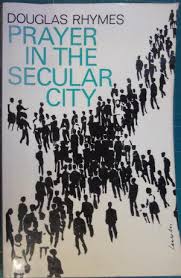
"Because inevitably our view of prayer is bound up with our view of God, and the problem of what we mean by God, and above all what we mean by calling God personal, will obviously affect not only our beliefs about prayer but also the way in which we pray. Prayer and faith are inseparable both in content and in method"
--Douglas Rhymes; Prayer in the Secular City; 1967
haddon robinson
(March 21, 1931 – July 22, 2017)
May 2, 2023: Christianity Today: Tim Keller, John Piper, and Andy Stanley Among the 12 ‘Most Effective’ Preachers
This week, Baylor University’s Truett Theological Seminary released its 2018 ranking of the ministers who set the standard for contemporary sermons. It lists a cross-denominational mix of evangelical heavyweights ranging from Reformed leaders such as John Piper and Tim Keller, to classic preachers such as Chuck Swindoll and the late Haddon Robinson, to fresher voices such as Andy Stanley and Ralph Douglas West. Haddon Robinson, former president and professor of preaching at Gordon-Conwell Theological Seminary in Boston. Robinson’s book Biblical Preaching is a go-to text for seminaries and Bible colleges. He died last year at 86 and is remembered as an unmatched champion of expository preaching.
This week, Baylor University’s Truett Theological Seminary released its 2018 ranking of the ministers who set the standard for contemporary sermons. It lists a cross-denominational mix of evangelical heavyweights ranging from Reformed leaders such as John Piper and Tim Keller, to classic preachers such as Chuck Swindoll and the late Haddon Robinson, to fresher voices such as Andy Stanley and Ralph Douglas West. Haddon Robinson, former president and professor of preaching at Gordon-Conwell Theological Seminary in Boston. Robinson’s book Biblical Preaching is a go-to text for seminaries and Bible colleges. He died last year at 86 and is remembered as an unmatched champion of expository preaching.
albert j roboteau
Dec 30, 2021: Religion News: Observers, detractors and preachers of religion who died in 2021
Albert J. Raboteau. The American religion historian helped students and journalists enhance their knowledge of African American religion.
Raboteau died Sept. 18 at 78.
He was a member of Princeton University’s faculty since the 1980s, earning emeritus status in 2013, and chaired the university’s religion department from 1987 to 1992. Known for his mentoring of students and for writing his 1978 book “Slave Religion: The ‘Invisible Institution’ in the Antebellum South,” he also spoke to journalists about contemporary religious issues. He said cross-racial gatherings like Bible studies and meal sharing could be more important than apologies about racism by predominantly white denominations.
“What we are as a nation is a collection of disparate stories, an ever exfoliating set of separate stories and what we need to bind us together is to be able to hear the stories of others in face-to-face encounter,” he said at the 2015 Faith Angle Forum, where he talked to reporters about “Forgiveness and the African American Church Experience.”
In 2016, Raboteau published the book “American Prophets: Seven Religious Radicals and Their Struggle for Social and Political Justice,” which included chapters on Rabbi Abraham Joshua Heschel, the Rev. Martin Luther King Jr. and Fannie Lou Hamer. The book was based on his “Religious Radicals” seminar for Princeton undergraduate students.
Albert J. Raboteau. The American religion historian helped students and journalists enhance their knowledge of African American religion.
Raboteau died Sept. 18 at 78.
He was a member of Princeton University’s faculty since the 1980s, earning emeritus status in 2013, and chaired the university’s religion department from 1987 to 1992. Known for his mentoring of students and for writing his 1978 book “Slave Religion: The ‘Invisible Institution’ in the Antebellum South,” he also spoke to journalists about contemporary religious issues. He said cross-racial gatherings like Bible studies and meal sharing could be more important than apologies about racism by predominantly white denominations.
“What we are as a nation is a collection of disparate stories, an ever exfoliating set of separate stories and what we need to bind us together is to be able to hear the stories of others in face-to-face encounter,” he said at the 2015 Faith Angle Forum, where he talked to reporters about “Forgiveness and the African American Church Experience.”
In 2016, Raboteau published the book “American Prophets: Seven Religious Radicals and Their Struggle for Social and Political Justice,” which included chapters on Rabbi Abraham Joshua Heschel, the Rev. Martin Luther King Jr. and Fannie Lou Hamer. The book was based on his “Religious Radicals” seminar for Princeton undergraduate students.
robert rollock
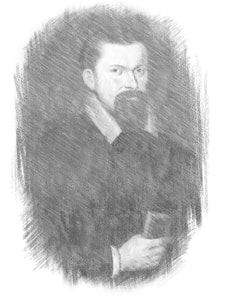
Robert Rollock (c. 1555 – 8 or 9 February 1599) was Scottish academic and minister in the Church of Scotland, and the first regent and first principal of the University of Edinburgh. Born into a noble family, he distinguished himself during his education at the University of St Andrews, which led to him being appointed regent of the newly created college in Edinburgh in 1583, and its first principal in 1586.After the college had grown and other regents had been appointed, Rollock no longer had to perform everyday teaching, and he became the university's first Professor of Theology. In parallel to his academic duties, he acted as a minister and served in various church functions until his death in 1599. Rollock was acknowledged by his contemporaries as a prolific academic and Biblical scholar, and effective principal.
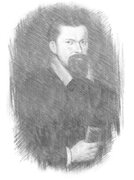 Robert Rollock
Robert Rollock
When the Lord died, ye must not think that he died for all: he died for some: he died not for any reprobate: he separated the Elect from the Reprobate, by virtue of his death. When he offered himself to the death, his eye was set upon every one of the Elect that was in the world: and when he was going to death, he said in his heart, I will die for this sinner, and this sinner, etc.” --Robert Rollock; Twenty-Five Lectures Upon the Last Sermon and Conference of our Lord Jesus Christ, With his Disciples immediately before his Passion
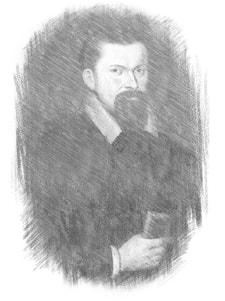 Robert Rollock
Robert Rollock
"Man, after the fall, abides under the covenant of works; and to this day, life is promised him under condition of works done by strength and nature. But if he will not do so well, death and the everlasting curse of God is denounced against him, so long as he is without Christ and without the gospel. And being freed from the covenant of works…he is admitted to the covenant of grace…. Christ, therefore, our Mediator, subjected himself to the covenant of works, and unto the law for our sake, and did both fulfill the condition of the covenant of works in his holy and good life…and also did undergo that curse with which man was threatened in the covenant of works, if that condition of good and holy works were not kept…Wherefore we see Christ in two respects, to wit, in doing and suffering, subject to the covenant of works, and in both respects he has most perfectly fulfilled it, and that for our sake whose Mediator he is become."
—Robert Rollock, Select Works, 1.52.
—Robert Rollock, Select Works, 1.52.
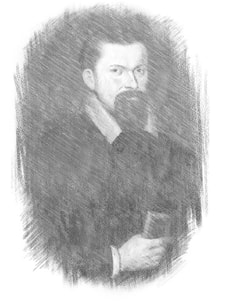 Robert Rollock
Robert Rollock
“In all this railing out against Him, ye see the extreme humiliation of Jesus Christ for our sins. He is made of no reputation; no, He is trod on as a worm; and no question that extreme torment of body was not so grievous to Him as was this railing on Him. They speak to Him as a very reprobate, and so far as lay in them, they endeavored to make him to despair of all help. So ye may see this railing was a thing most grievous to Him. And David being his type, he complains on this shame that they heaped on him, in the 22nd Psalm. All this lets us see how dearly the Lord has bought our life and salvation; and we are more than miserable if we see not this. And also, it lets us see what should have become of us if he had not satisfied for us, and what should become of thee, if thou be not in Christ in that great day. And it tells thee, seeing all this is for thy sin, that thou shouldst have a sad heart to have such a Redeemer made such a spectacle, and thou shouldst groan under the burden of sin; and when thou read of the cross, thine heart should be sorrowful that ever thou shouldst have moved the God of glory to such vengeance of his dear Son for thee. Think not that every man shall be relieved of his sin by Him; no, only those who learn to groan under the burden of their own sins, by the which they have pierced Him, and turn to the Lord unfeignedly, and get favor. So, if thou learn not at one time or other to groan under the burden of thy sin, thou shalt never be relieved by Him.” -Robert Rollock; Select Works of Robert Rollock
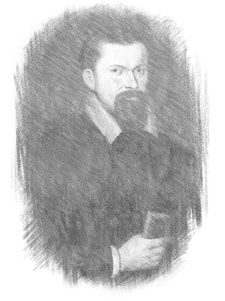 Robert Rollock
Robert Rollock
“The saints find in experience, that it is not an easy thing to find a familiar access to God in prayer. Except our consciences first be purged, we can have no access to God; therefore, whosoever would draw near to God, let him seek to follow the counsel of the Apostle in the 10th chapter of the Epistle to the Hebrews, and the 22nd verse, where he says, “Let us draw near with a true heart in an assurance of faith, sprinkled in our hearts from an evil conscience.” No flesh can have a favorable access to God, except his conscience be first purged from guiltiness; yea, that which we speak of the guiltiness of sin, we speak also of sin itself, that except it be quite taken away out of his sight, that he will not look favorably upon us. And this is that which the prophet says here, “If thou, O Lord, straitly markest iniquities, O Lord, who shall stand?” For, as guiltiness of sin stays us to behold God, so sin itself stays God from beholding us, miserable wretches, with the eyes of his compassion. So long, therefore, as thy conscience is not purged, when thou go to present thyself before his majesty, if thy conscience be wakened, thou wilt find God marking thy sins, laying them to thy charge, and wilt find him as a terrible judge, compassed about with burning wrath, ready to destroy thee: and if He mark thee, thou hast no standing, and if thou appear not clothed with the righteousness and perfect satisfaction that Jesus, through his blood, has purchased for thee, thou dare not presume to approach, for then his fierce wrath shall be poured out upon thee.”
--Robert Rollock; Select Works of Robert Rollock
--Robert Rollock; Select Works of Robert Rollock
richard rubenstein
Dec 30, 2021: Religion News: Observers, detractors and preachers of religion who died in 2021
Richard Rubenstein. The radical Jewish thinker questioned the existence of God and wrote the seminal 1966 book “After Auschwitz.”
Rubenstein died May 16 at age 97. Some of his theological views were shaped by the death of his infant son on the eve of Yom Kippur in 1950. He left his role as a Conservative rabbi and became a Florida State University professor, then president of the University of Bridgeport and ultimately one of the intellectual fathers of neoconservativism.
The leader of the “death of God” movement divided history before and after the creation of the Nazis’ largest death camp in World War II.
“Although Jewish history is replete with disaster, none has been so radical in its total import as the Holocaust,” he wrote in “After Auschwitz,” according to The Washington Post. “Our images of God, man, and the moral order have been permanently impaired. No Jewish theology will possess even a remote degree of relevance to contemporary Jewish life if it ignores the question of God and the death camps. That is the question for Jewish theology in our times.”
Richard Rubenstein. The radical Jewish thinker questioned the existence of God and wrote the seminal 1966 book “After Auschwitz.”
Rubenstein died May 16 at age 97. Some of his theological views were shaped by the death of his infant son on the eve of Yom Kippur in 1950. He left his role as a Conservative rabbi and became a Florida State University professor, then president of the University of Bridgeport and ultimately one of the intellectual fathers of neoconservativism.
The leader of the “death of God” movement divided history before and after the creation of the Nazis’ largest death camp in World War II.
“Although Jewish history is replete with disaster, none has been so radical in its total import as the Holocaust,” he wrote in “After Auschwitz,” according to The Washington Post. “Our images of God, man, and the moral order have been permanently impaired. No Jewish theology will possess even a remote degree of relevance to contemporary Jewish life if it ignores the question of God and the death camps. That is the question for Jewish theology in our times.”






